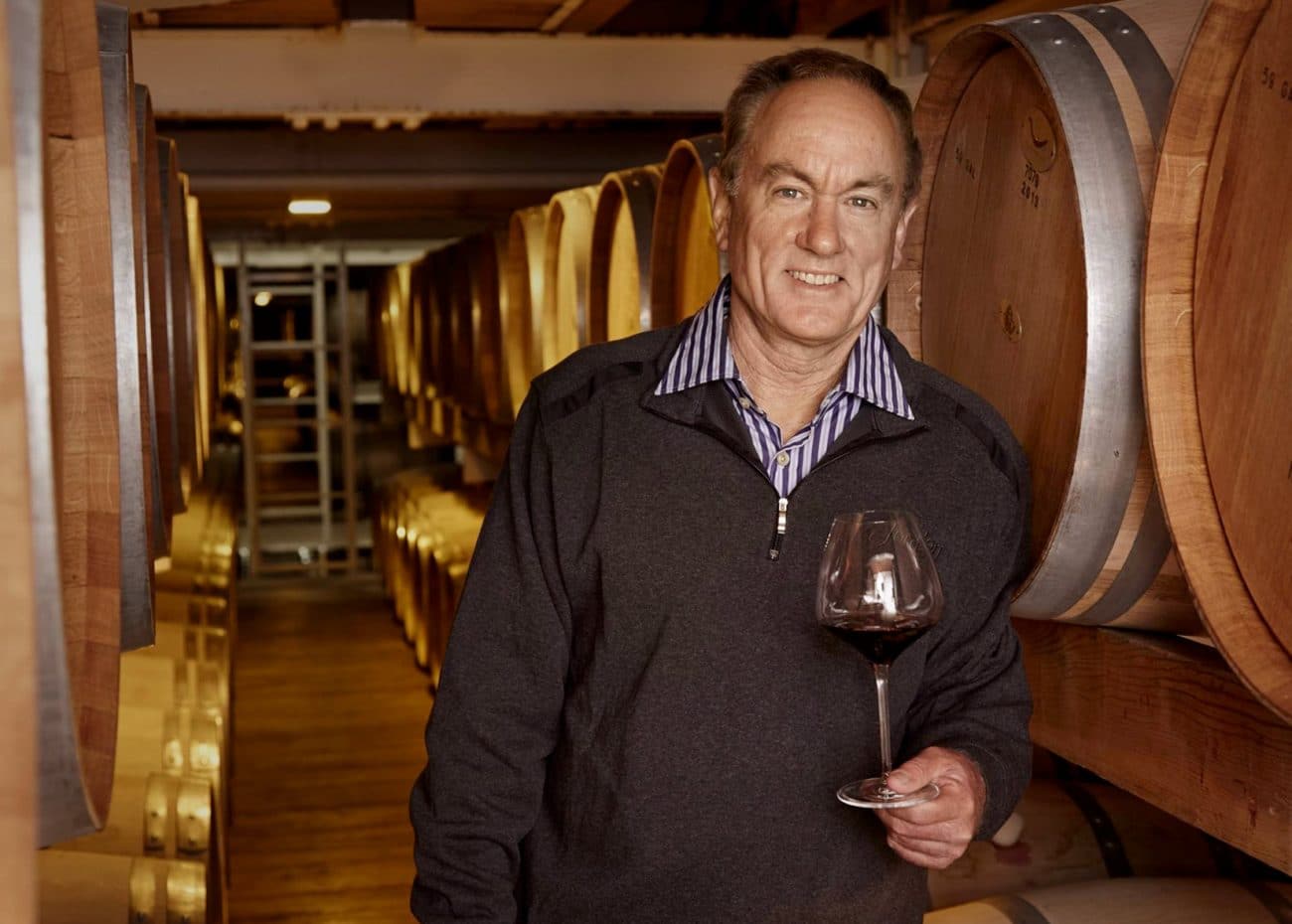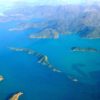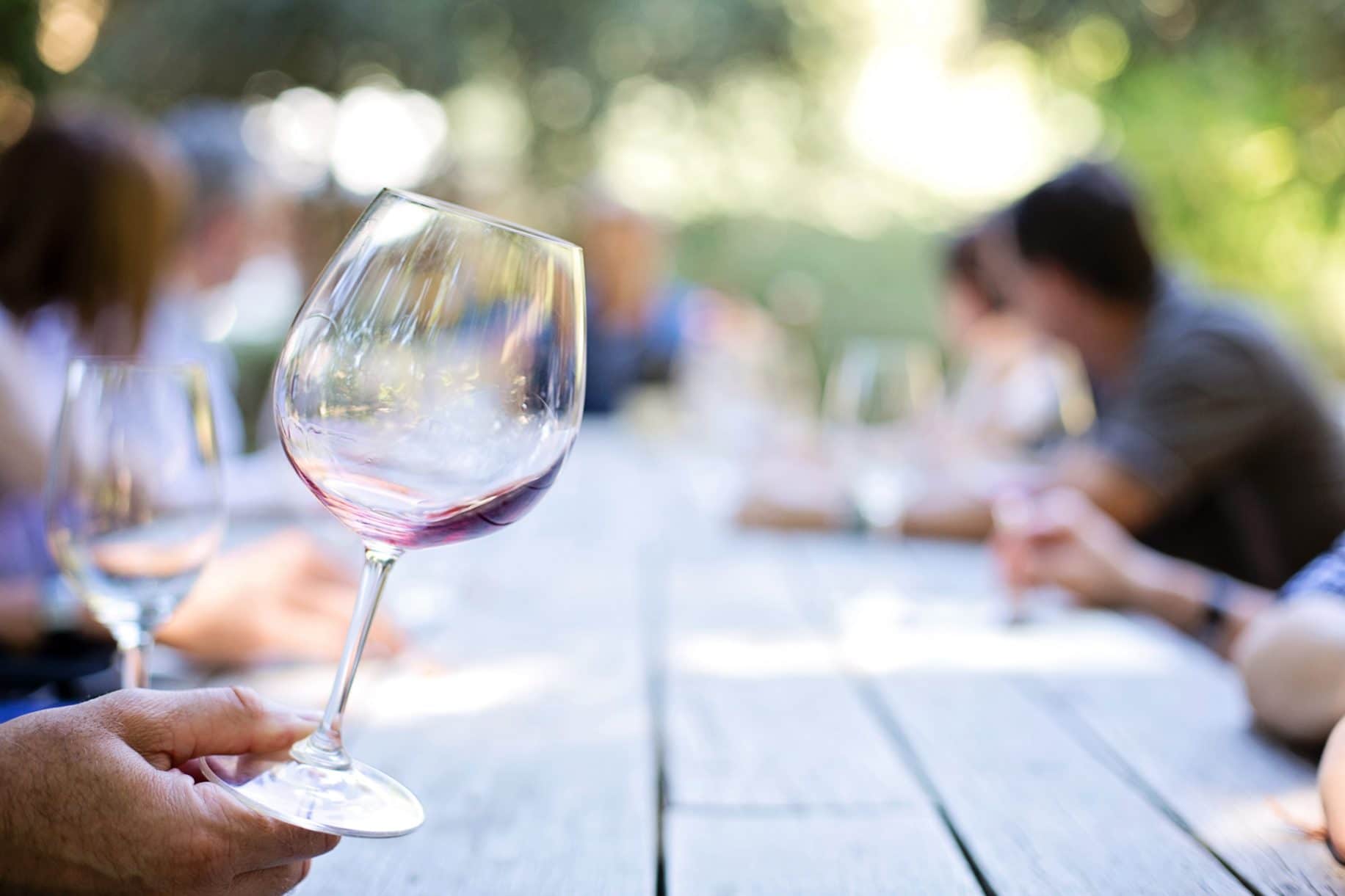Rob Davis holds the rare distinction in California of serving as winemaker at one winery for more than 40 years. His tremendous technical background, empirical wisdom, desire for discovery, and meticulous quality standards remain a guiding force in the vineyards and cellars at Jordan.
Upon graduation from University of California at Davis in 1976, Davis began working hand-in-hand with famed winemaker André Tchelistcheff to craft the inaugural vintage of Jordan Alexander Valley Cabernet Sauvignon. With his fermentation science degree in hand, Davis was excited about the opportunity to apprentice under a man considered America’s most influential post-Prohibition winemaker, who had been hired by the Jordan family as consulting enologist. “I went to two schools to learn about winemaking,” Davis says. “The school at Davis and the school of André Tchelistcheff.”
From 1980 until Tchelistcheff’s retirement in 1992, the two winemakers took trips to countless chateaux, domaines and caves in France that influenced all aspects of winemaking at Jordan in Sonoma County. The two became close friends and found that they shared a common philosophy of balanced winemaking, and an appreciation for the relationship between food and wine in everyday life in Europe.
When second-generation vintner John Jordan took the reins in 2005, Davis and Assistant Winemaker Maggie Kruse were thrilled to accept Jordan’s challenge to elevate quality even higher. Fruit sourcing became Davis’s first objective, identifying top growers whose exceptional fruit could complement the best blocks of Bordeaux varieties planted on the Jordan Estate. Davis and the winemaking team also extended bottle age of Jordan Cabernet Sauvignon to two full years beginning with the 2006 vintage, launched an extensive soil-mapping study, decreased the malolactic fermentation on Jordan Chardonnay to retain even more minerality and acidity and increased the amount of French oak in Jordan Cabernet Sauvignon barrel aging. His inner scientist keeps experiments constantly in progress in the vineyards, laboratory and cellars.
Davis’s commitment to the timeless qualities of balance and elegance has never wavered. While many winemakers have followed the trend of making overripe, heavily oaked, high-alcohol wines to wow critics in blind tastings, Davis continues to pick his Cabernet Sauvignon grapes at optimal sugar levels that preserve acid and keep alcohols below 14 percent. His philosophy of aging in a combination of new and used barrels helps create a wine that is complex but not over extracted. Thanks to Davis’s tenure, the consistent characters delivered in every vintage of our Alexander Valley Cabernet Sauvignon and Russian River Valley Chardonnay—beautiful fruit, silky tannins and a lingering memory—have made Jordan an icon and one of the most popular wines on restaurant wine lists for three decades.
Born and raised in Sacramento, Davis remains active in cooperative research at UC-Davis, the American Society of Enology and Viticulture and the Sonoma County Technical Tasting Group. He is an avid swimmer, cyclist and runner, competing in several triathlons each year. Similar to his mentor, André, he continues to travel the world in an effort to learn more about the miracle of wine.
Why did you become a winemaker?
Winemaking combines a blend of art and science. But mainly winemaking incorporates a kinship of wonderful people. I chose winemaking mainly because it was like joining a fraternity of friends throughout the world.
If you weren’t a winemaker what would you be and why?
I originally studied premed at UC Davis to become a doctor. The four year enology program incorporates very similar studies which were equally challenging: chemistry, biochemistry, physics, calculus, biology, botany, microbiology to name more than a few. My other thought was to become a woodworking craftsman, which instead has become a hobby.
What is your greatest strength as a winemaker?
To surround myself with amazingly talented people that share similar pursuits. The team I work with today is such a privilege.
What is your biggest weakness as a winemaker?
Lack of patience for incompetence. Success in almost any craft requires the cooperation of a great staff and inspiring others that are sanguine with mediocrity to set higher goals for them to achieve.
What’s the one mistake you made in the cellar you would never repeat?
Probably ignoring the fact that brettanomyces as a spoilage yeast had the capacity to increase its tolerance to our control program so quickly. Fortunately, we made a quick recovery. But my reaction was, “You have got to be kidding me!”
What is your proudest achievement?
To assemble such a great winemaking team that Jordan has today; as well as working with winemaking interns that went on to accomplish great things as well. I continue to learn from them all.
What was your scariest vintage to date?
1996—5 days of 114 degrees at veraison and the vines aborted the fruit way before they reached maturity.
What is your favorite saying?
Cardinal rule of winemaking: “Never assume.” (Guess I learned that one from my brettanomyces experience…)
What is your most prized possession?
I wouldn’t call it a possession, but I value my family more than anything else.
What’s the oddest thing about you?
Too many odd things; but my daydreaming as a child never really abated over the years.
What song best sums you up?
“What a Wonderful World” by Louis Armstrong.
What is your favorite memory?
The birth of my daughter.
Which of the five senses is your strongest?
Sense of smell.
What is your biggest motivation?
To make every vintage better than the last. Applying the empirical experience one acquires year in and year out is fundamental to improving each vintage from the last. The quality of each vintage is primarily due to Mother Nature; but the skill sets applied to each year’s variables is what makes the difference between good and great.
Which bottle(s) of wine would choose to be stranded with on a deserted island?
I had the pleasure of sharing a bottle of 1982 Petrus with the winemaker at dinner. It was incredible, and even Jean-Claude Berrouet thought so. And hopefully I would be stranded with at least one person, as wine is meant to be shared.
What is the difference between a good and great wine?
A good wine you enjoy at the time, a great wine you awake the next morning and still remember everything about it.
Name three individuals you would like to have dinner with?
Only three? Other than my family, of course, the three that come to mind are Steve Jobs, Elon Musk and André Tchelistcheff—all visionaries; all very demanding of their craft.
Who is your winemaking hero?
André Tchelistcheff, or course. A blend of so many skills—a poet, a farmer, an artist that appreciates the senses, a scientist and loved life without limits.
What does the concept of “balance” mean to you?
When the aroma of the fruit is balanced by the structure of tannin and acidity to a degree where the palate cannot discern any singularity of the wine—the senses are fully exercised without the distraction of excess.
What is the one thing you want people to remember about your wine?
The enjoyment of wine is the exercise of the senses. For each imbiber of our wine to find lasting pleasure from the experience of smelling, tasting and remembering the finish of the wine; the imbiber wishes to repeat the experience if possible. To hear a customer say, “Oh, the Jordan, such a classic, it never disappoints.”
Best comment made about your wine? Was it by a consumer, trade or press?
A wine writer: “Jordan aims for the fence and clears it easily.” (Guess they knew my love of baseball…)




